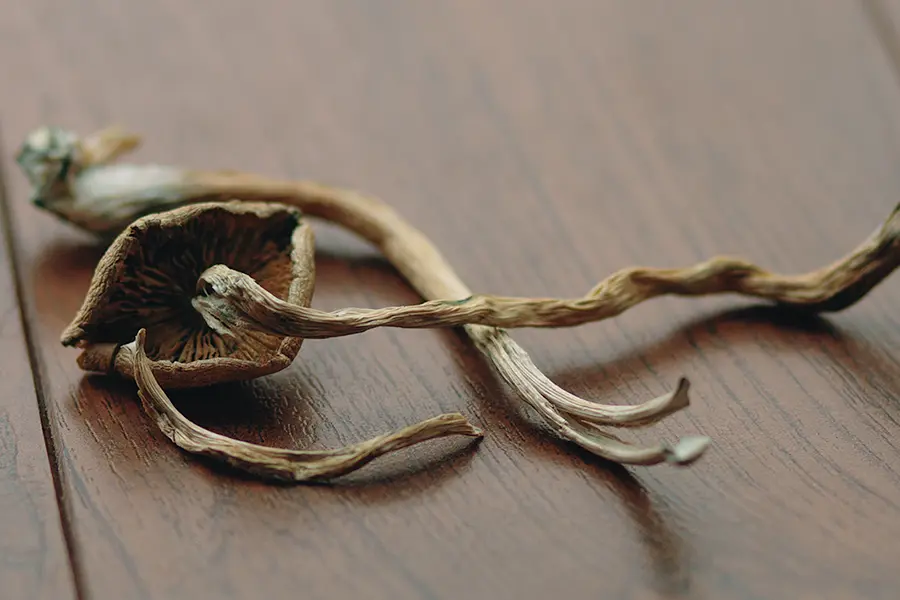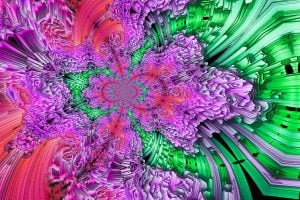A little known bill to decriminalize psilocybin has arrived in New York State’s health committee this past April. Sponsored by historically pro-cannabis Assemblymember Linda Rosenthal, who represents parts of Manhattan’s Upper West Side, A10299 is significant because it’s one of the first pieces of psychedelic legislative reform in the country to be introduced from within the state’s legislature (the others are from Iowa and Vermont), rather that by an activist group like Decriminalize Nature. (DoubleBlind reached out to the Assemblymember’s office and will update the story as it progresses.)
Rosenthal’s bill is straightforward in its mission: to remove psilocybin—the main psychedelic component in shrooms—from Schedule I of New York’s Public Health Law, which is the state’s list of controlled substances. However, amidst its simplicity remain a number of lingering questions.
“It doesn’t look like it would legalize or decriminalize magic mushrooms per se, just psilocybin in particular,” explains Troy Smit, deputy director of Empire State NORML (National Organization for the Reform of Marijuana Laws). Psilocin, for instance, which may also be found in psychedelic mushrooms, remains prohibited. “It’s an interesting approach,” Smit adds, noting that this is only the first draft of the bill.
In the “justification” or intent behind the bill, included in Rosenthal’s “memorandum in support of the legislation,” the Assemblymember references psilocybin’s scientifically proven medical utility in treating anxiety, depresion, eating disorders, and addiction. She also notes that the FDA, upon reviewing the work of for-profit drug development company Compass Pathways, had put psilocybin on the fast track to becoming a prescription medication in assisted psychotherapy. “Many cities, including Denver, CO, Santa Cruz, CA, and Oakland, CA, have already decriminalized the use and possession of psilocybin, and New York should do the same,” Rosenthal writes. “With the opportunity to positively affect the lives of millions suffering with mental health and addiction issues, this bill will decriminalize psilocybin and allow further research into the study of the drug and its beneficial uses for treatment.”
Nonetheless, it’s unclear at the moment how or if the bill would facilitate access to psilocybin for therapeutic purposes, or otherwise address what will happen in the market, more broadly speaking: Would there still be possession limits, prohibition of sales, and regulations for psilocybin therapy? These are among the many considerations in regard to decriminalization—but for now, the bill seems to be mostly a political statement, than a thorough plan for legislative reform.
Read: Everything You Should Know About the Campaign to Decriminalize Naturally Occurring Psychedelics
Generally speaking, Noah Potter, author of the Psychedelic Law Blog and an attorney with cannabis firm Hoban Law Group, calls the bill “a very positive step forward and suggests that there’s a lot of opportunity for psychedelic reform here [in New York].”
How to Grow Shrooms Bundle
Take Both of Our Courses and Save $90!
For starters, decriminalization helps diminish the stigma around drug use, which could therefore make it safer for consumers who may otherwise risk arrest or lack the resources to help them journey safely. “I think about the harm reduction analogy of safe injection rooms [for opioid users] or harm reduction drop in spaces where people are welcome to use their substances,” says Dr. Andrew Tatarsky, founder of NYC’s Center for Optimal Living, a treatment center based on Integrative Harm Reduction Therapy for substance misuse and high-risk behavior. “So maybe what’s more likely is something akin to Zendo [a psychedelic harm reduction zone at festivals], a space where people can come, having used their own supplies, and have a safe space.”
Read: Prescription Psychedelics are Almost Here—But Western Medicine Isn’t Ready
Decriminalization might make it more viable for cities, such as New York, to have brick-and-mortar psychedelic community centers, perhaps even with trained staff to help people through challenging trips. “Just like supervised injection facilities for opiates are not condoning or giving people permission to use substances, we’re just being pragmatic that people are going to use these substances and we think there’s a strong ethical argument for providing education and support to reduce harm and to support safety and wellness,” says Tatarsky.
But this remains simply a vision, at the moment, as Rosenthal’s bill is still fresh. Even so, it’s a powerful opportunity for mental health professionals like Tatarsky to organize and offer support to the Assemblymember, he offers. “Obviously, there is a growing group of serious licensed professionals who deeply believe in the usefulness of psilocybin for many things,” Tatarsky says. “With the accumulation of both millennia of traditional wisdom and the science over the last 20 years, while it hasn’t yet gotten the FDA stamp of approval, I think it’s gotten many people to be strongly in support of psilocybin-assisted therapy.” But, he adds, for practitioners to feel comfortable engaging in actual therapy, there would need to be further protocols and legal authorization, such as Oregon’s bill to legalize psilocybin in therapeutic contexts; decriminalization is just the beginning.

DoubleBlind is a trusted resource for news, evidence-based education, and reporting on psychedelics. We work with leading medical professionals, scientific researchers, journalists, mycologists, indigenous stewards, and cultural pioneers. Read about our editorial policy and fact-checking process here.

DoubleBlind Magazine does not encourage or condone any illegal activities, including but not limited to the use of illegal substances. We do not provide mental health, clinical, or medical services. We are not a substitute for medical, psychological, or psychiatric diagnosis, treatment, or advice. If you are in a crisis or if you or any other person may be in danger or experiencing a mental health emergency, immediately call 911 or your local emergency resources. If you are considering suicide, please call 988 to connect with the National Suicide Prevention Lifeline.



